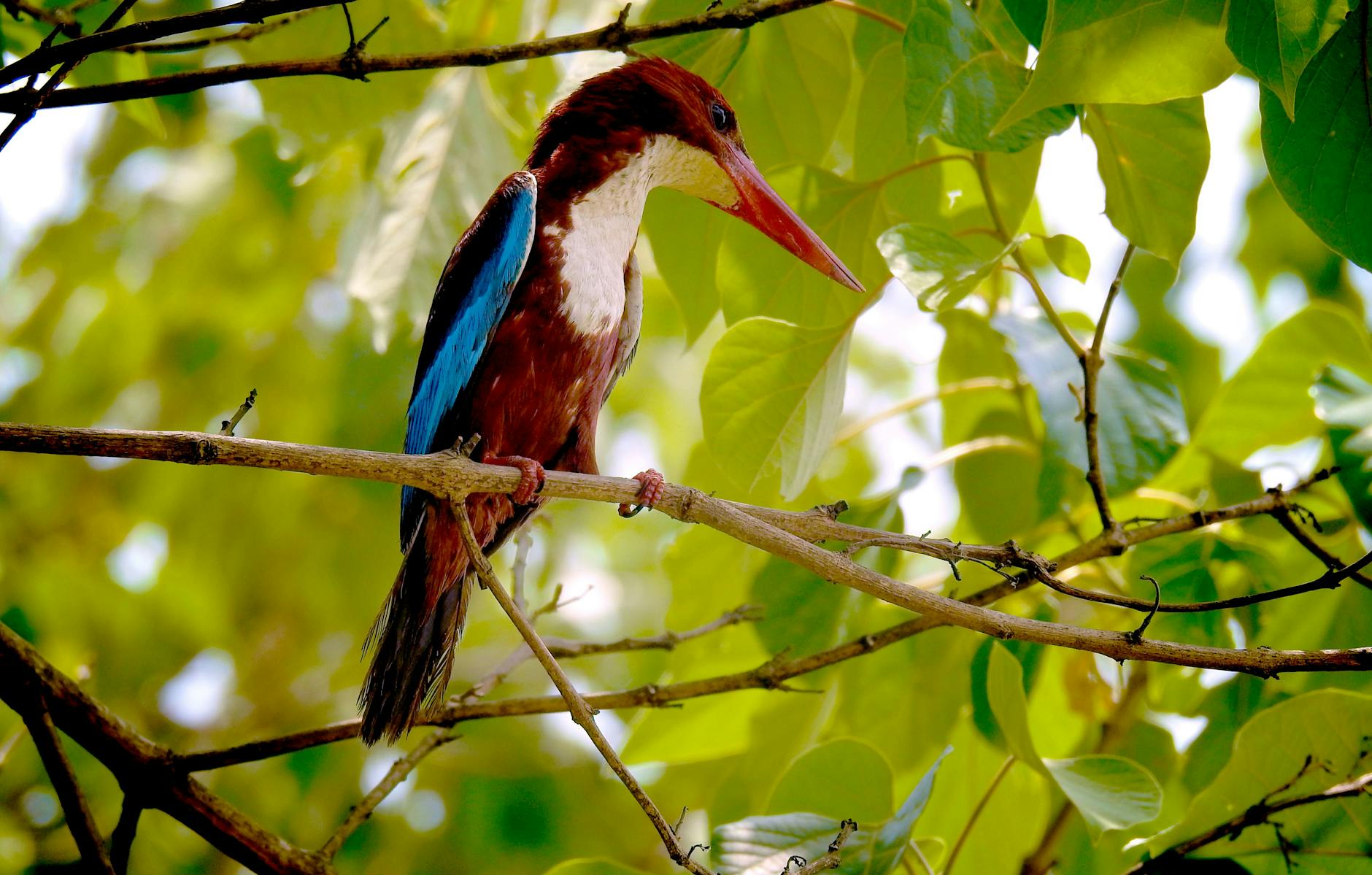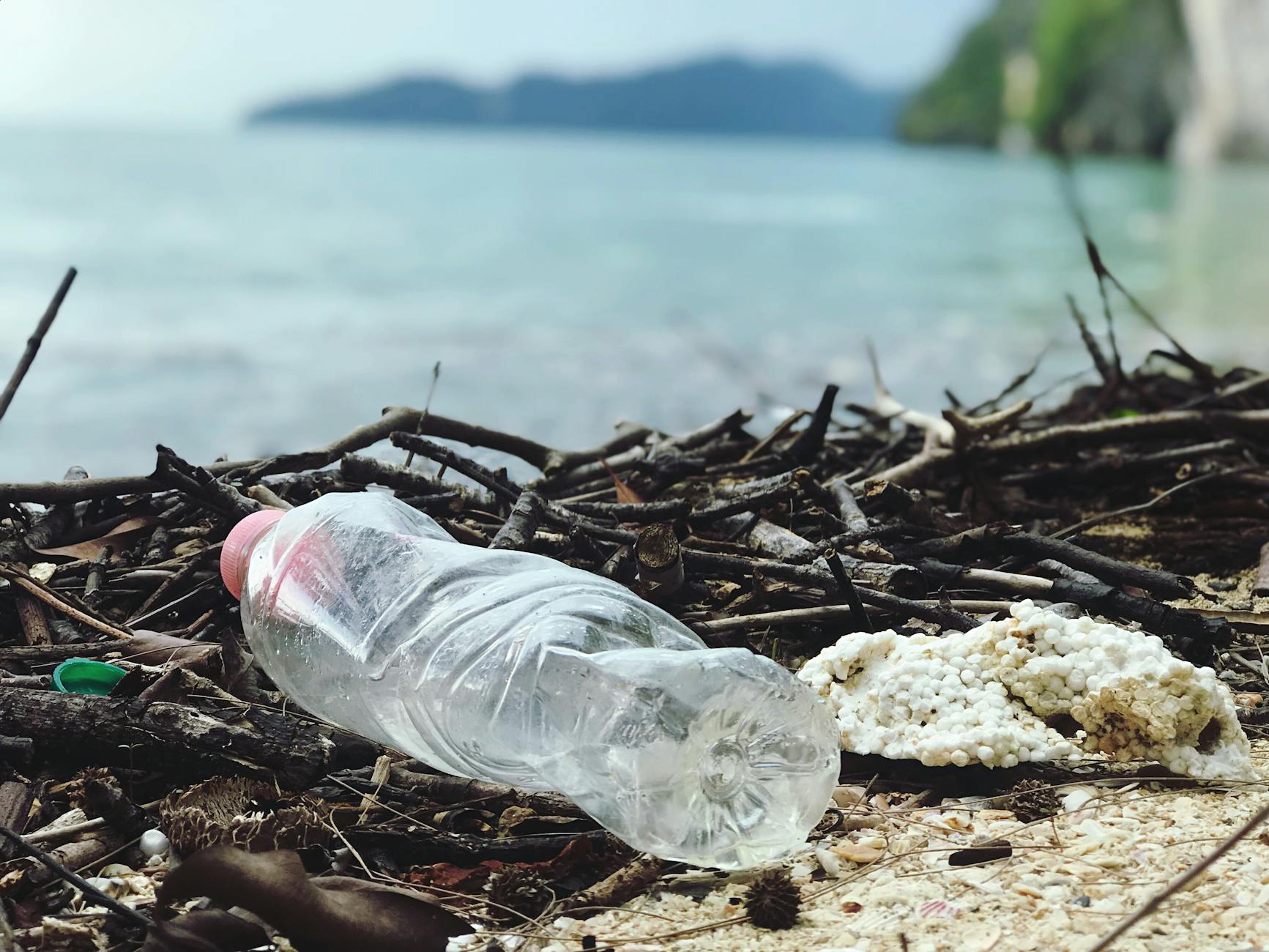Protecting Kingfishers: Simple Ways You Can Make a Difference
Kingfishers are not just a beautiful sight; they’re important indicators of healthy ecosystems. Their vibrant plumage and unique hunting skills make them a vital part of our wildlife. However, these remarkable birds are facing significant challenges, including habitat loss and pollution.
In this post, you’ll discover simple actions you can take to protect kingfishers and ensure they thrive in your area. From creating suitable habitats to being mindful of pollution, every small effort counts. Together, we can make a difference for these enchanting birds and the environment they rely on. Let’s explore how you can help safeguard their future.
Understanding the Importance of Kingfishers
Kingfishers are more than just stunning birds; they play a vital role in maintaining healthy ecosystems. By understanding their habitat, diet, and their contributions to biodiversity, we can appreciate why protecting them is essential for the environment.
Habitat and Diet
Kingfishers thrive in diverse habitats, predominantly near water sources. You can find them in riverbanks, lakesides, marshes, and even coastal areas. Each species has its preferred environment; for instance, the Common Kingfisher often frequents freshwater bodies, while others like the Belted Kingfisher may be found near saltwater.
Their diet mainly consists of fish, crustaceans, and various insects. They are skilled hunters, catching prey with precision. Interestingly, some kingfishers also adapt their diet based on their habitat, feasting on small reptiles and mammals when aquatic food is scarce. This adaptability highlights their crucial role in the food web. For more detailed information on their diet and habitat, check out this link.

Photo by Pixabay
Role in Biodiversity
Kingfishers contribute significantly to biodiversity and ecosystem health. As predators, they help regulate fish populations, which in turn can influence the growth of aquatic vegetation. This balance helps sustain the delicate ecosystems within their habitats.
Moreover, kingfishers serve as indicators of environmental quality. Their presence often signifies a healthy ecosystem, free from pollution and other disturbances. When kingfisher populations decline, it can signal underlying environmental issues that require attention. This role underscores the need for conservation efforts, as safeguarding these birds also protects the broader ecosystem.
By understanding and recognising the ecological importance of kingfishers, we can better appreciate the need for actions that support their survival. For further insights into their role in ecosystems, visit this link.
Challenges Faced by Kingfishers
Kingfishers face several challenges that threaten their survival and well-being. Understanding these obstacles can help us develop effective strategies for protecting these remarkable birds. From environmental changes to human disturbances, kingfishers are struggling in various ways.
Environmental Changes
Climate change and habitat destruction are significant threats to kingfisher populations. As global temperatures rise, the delicate balance of ecosystems shifts. Changes in rainfall patterns can affect water levels in rivers and ponds, which are vital for kingfishers. These birds rely on stable water sources for hunting and nesting. For instance, severe flooding can wash away nests while prolonged drought can reduce fish populations, directly impacting their food availability.
Additionally, habitat loss due to urban development, agriculture, and industrialisation further diminishes their natural living spaces. Deforestation and riverbank alteration not only destroy habitats but also reduce the number of available nesting sites. Research indicates that habitat destruction is a leading cause of declines in various kingfisher species (source).
Pollution and Water Quality
Water pollution significantly affects kingfishers, as their feeding behaviour relies heavily on clean water sources. Contaminants such as plastics, heavy metals, and agricultural runoff can harm water quality, leading to decreased fish populations. Ingesting contaminated prey can cause serious health issues for kingfishers, including reproductive problems and increased mortality rates.
Studies have shown that the presence of pollutants can lead to oxidative distress in breeding populations, affecting their overall health and breeding success (source). Moreover, polluted waters can lead to changes in foraging behaviour, pushing these birds to adapt or migrate to less contaminated areas (source).
Human Disturbance
Human activities pose a significant threat to kingfishers and their habitats. Urbanisation, recreational activities, and agricultural practices often disrupt nesting areas and hunting grounds. These birds are particularly sensitive to disturbances, especially during the breeding season. Increased human presence can lead to nest abandonment or reduced breeding success due to stress (source).
Furthermore, the continuous modification of landscapes for development compromises the natural environments that kingfishers depend on. Streams and rivers are often altered for flood control or irrigation, further impacting the delicate ecosystems kingfishers rely on for survival. Protecting their habitats from human disturbance is crucial for their conservation.
By recognising these challenges, we can better understand the importance of implementing effective conservation measures to support kingfisher populations and their habitats.
Simple Ways to Make a Difference
Every individual has the power to positively impact the environment and contribute to kingfisher conservation. Here are some practical steps you can take to make a genuine difference in protecting these beautiful birds.
Creating a Bird-Friendly Garden
A garden that welcomes birds can be a sanctuary for kingfishers and other wildlife. Here are some tips to help you create a bird-friendly environment:
- Plant Native Flora: Native plants are more beneficial to local birds than exotic species. They provide food and shelter. For example, plants such as berry bushes attract insects that nesting birds can feed on.
- Add Water Features: Consider incorporating a small pond or birdbath. Clean, fresh water is crucial for birds, not only for drinking but also for bathing.
- Provide Shelter: Create natural habitats with shrubs, tall grasses, and dead wood. These offer nesting sites and protection from predators.
For more detailed strategies, visit Audubon’s guide on creating bird-friendly spaces.

Photo by Siegfried Poepperl
Supporting Clean Water Initiatives
Clean water is essential for kingfishers and other wildlife. You can help by getting involved in local clean water initiatives. Here’s how:
- Participate in Clean-Up Campaigns: Join local organisations that organise river or beach clean-ups. Every piece of litter you remove contributes to healthier waterways.
- Advocate for Water Conservation: Encourage friends and community members to use water wisely. Simple changes, like fixing leaks and reducing water wastage, can have a significant impact.
- Support Local Water Initiatives: Research organisations focused on clean water efforts and consider donating time or resources. For more details, explore the Global Wellness Institute’s Clean Water Initiative.
Minimising Pesticide Use
Pesticides can harm not only the pests but also beneficial wildlife, including kingfishers. Here are some ways to reduce their use:
- Use Natural Pest Control Methods: Implementing natural pest control can effectively manage pests without harming beneficial species. Techniques include using beneficial insects, traps, and organic repellents. For more on organic methods, check out this guide.
- Create a Balanced Ecosystem: Encourage a healthy garden ecosystem by planting a variety of plants that attract predatory insects. This natural balance can reduce pests without chemicals.
- Choose Eco-Friendly Alternatives: If you must use pesticides, select those that are less harmful to wildlife. Visit the EPA’s tips on reducing pesticide impacts.
Educating Others
Raising awareness is vital for conservation. You can play a crucial role in educating others:
- Share Knowledge on Social Media: Use platforms like Facebook and Instagram to inform others about kingfisher conservation efforts. Sharing articles, videos, and pictures can engage and inspire.
- Host Workshops or Events: Consider organising a community workshop or event. Discuss the importance of kingfishers and share ways people can contribute to their conservation.
- Collaborate with Local Schools: Engage students by presenting talks on local wildlife, including kingfishers. Educational programs can foster a love for nature in young minds.
For further resources on kingfisher conservation, check out The Wilder Institute’s initiatives.
By taking these small but impactful steps, you can actively contribute to protecting kingfishers and creating a better environment for them and other wildlife.
Getting Involved with Conservation Efforts
Getting involved in conservation is one of the most impactful ways to protect kingfishers and their habitats. Whether through volunteering or participating in citizen science, every effort counts.
Volunteering Options
Volunteering for local wildlife conservancies is a fulfilling way to connect with nature and support kingfisher conservation. Here are several opportunities you can explore:
- Wildlife Trusts: They offer a variety of volunteering roles across the UK, from community gardening to species surveying. For more information, visit their volunteering opportunities.
- RSPB Residential Volunteering: This programme provides an immersive experience as you live on nature’s doorstep, helping with conservation tasks. Learn more about their offerings here.
- Nature Volunteers: This platform connects individuals with nature conservation projects, including those run by the RSPB and National Trust. To find a project that suits your interests, check out Nature Volunteers.
- Environment Job: This site lists recent conservation and wildlife volunteering opportunities, both in the UK and internationally. Explore more at Environment Job.
Each of these options offers a chance to make a tangible difference for kingfishers and other wildlife.
Participating in Citizen Science
Citizen science allows you to contribute to important research while enjoying bird watching. Here’s how you can get involved:
- British Trust for Ornithology (BTO): They run numerous projects such as the Breeding Bird Survey and Garden BirdWatch. These initiatives encourage you to record bird sightings and share data. Find out more at the BTO projects page.
- Garden BirdWatch: Join the thousands of participants who send in weekly records of the birds they see in their gardens. This project is a simple and enjoyable way to contribute. More details can be found here.
- Lost Woods Citizen Science: Record various species across the UK, including birds, and share your findings with the BTO. More information is available at Lost Woods.
- GVI’s Bird Citizen Science: This initiative involves reporting bird sightings and monitoring populations. Discover how you can participate in these efforts here.
Getting involved in citizen science is an enjoyable way to combine your love of birds with valuable contributions to conservation efforts. By volunteering and participating in these initiatives, you become an essential part of the movement to protect kingfishers and their habitats.
Conclusion
The final section of this article is crucial, emphasising that every action we take contributes significantly to protecting kingfishers. While the challenges these birds face can seem overwhelming, recognising your ability to influence change is empowering. By implementing even small changes in daily life, each person can make a noticeable impact.
Key Takeaways
- Individual Actions Matter: Every small effort counts. Whether it’s creating a bird-friendly garden or minimising pollution, your contributions have a collective effect.
- Spread Awareness: Engaging with friends and family about kingfisher conservation can amplify efforts. Conversations can spark interest and lead to further actions.
- Community Involvement: Joining local conservation groups not only helps kingfishers but also strengthens community ties. Collaborative efforts often yield greater results.
- Continuous Learning: Stay informed about the challenges kingfishers face. Knowledge is a powerful tool in advocating for their protection.
Protecting kingfishers is not just about conserving a bird species; it’s about preserving our natural environment. Each action we take today can lead to a thriving ecosystem tomorrow. To learn more about their conservation, check out these resources: Mission critical: saving an endemic kingfisher on the brink and Guam Kingfisher Conservation.

Photo by Catherine Sheila










